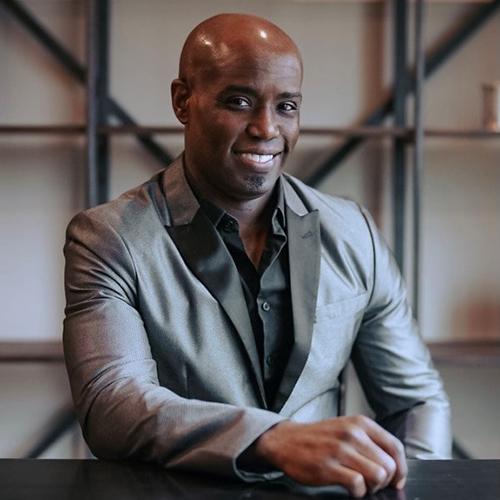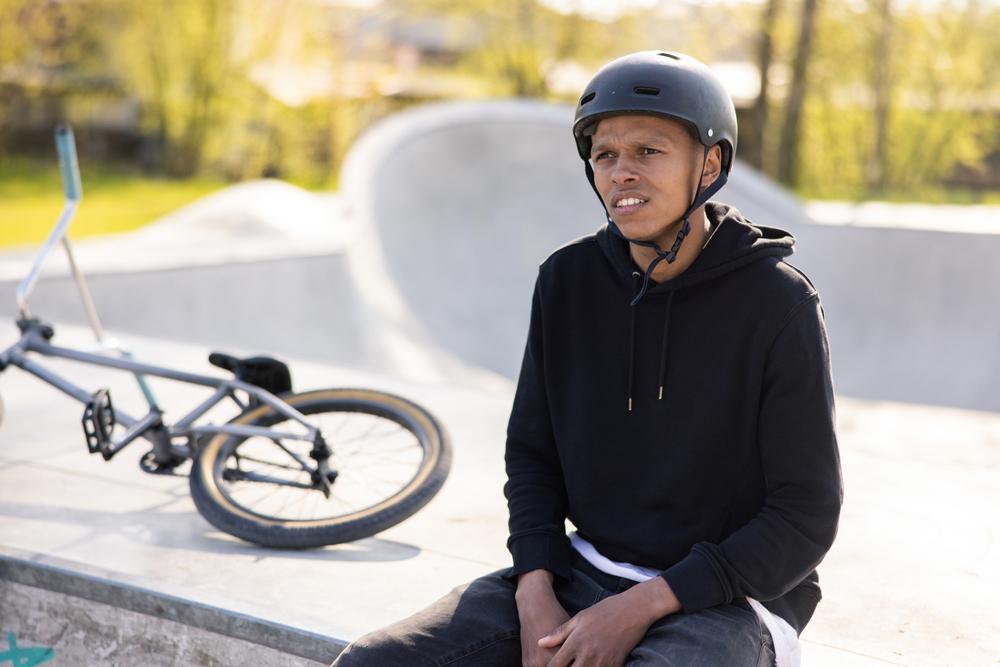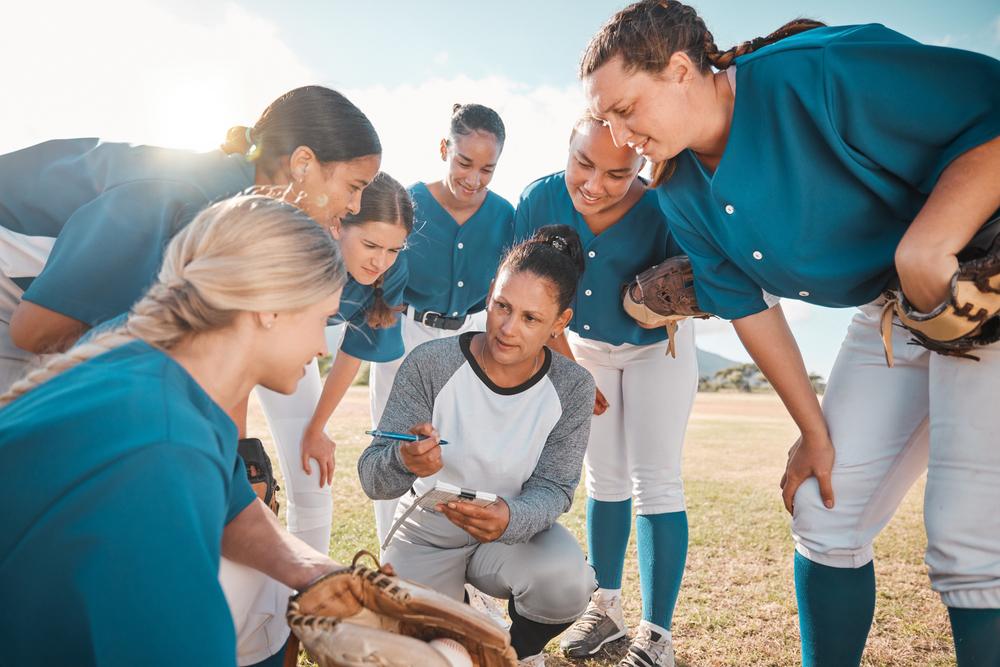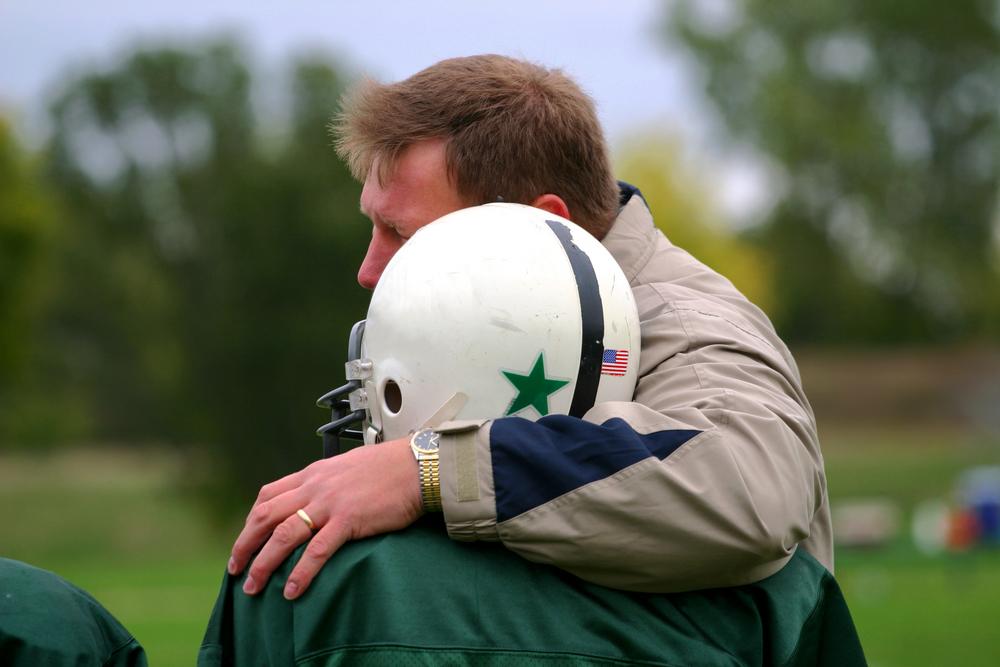 Maybe you’ve heard your coach tell you to ‘walk it off’ or ’shake it off’ when something went wrong during a game, or you lost a critical competition. While that advice is usually coming from a well-intentioned place, unfortunately, it makes many athletes feel like it’s not right to feel sad, mad, or disappointed. But if you never feel disappointed, you’re missing out on an important emotional experience. That might sound strange at first, but disappointment can be a springboard to making progress and improving in sport (and in life).
Maybe you’ve heard your coach tell you to ‘walk it off’ or ’shake it off’ when something went wrong during a game, or you lost a critical competition. While that advice is usually coming from a well-intentioned place, unfortunately, it makes many athletes feel like it’s not right to feel sad, mad, or disappointed. But if you never feel disappointed, you’re missing out on an important emotional experience. That might sound strange at first, but disappointment can be a springboard to making progress and improving in sport (and in life).
“I always tell athletes that successful athletes are the ones who normalize any emotional experience that comes from competition, and who learn to deal with those emotions in productive ways,” says TrueSport Expert Kevin Chapman, PhD, clinical psychologist and founder of The Kentucky Center for Anxiety and Related Disorders. Here, he shares ways to cope with—and move beyond—disappointment.
Feel your feelings
“Dealing with anxiety, frustration, sadness, anger, disappointment, and so on is part of being an athlete,” Chapman says. “So first of all, normalize that at some point, you will have those feelings, but they aren’t bad.” Remember, disappointment with how a game went or even how you played shouldn’t equate with being disappointed in yourself as a person. Your self-worth shouldn’t be linked to your athletic achievements.

Make disappointment work for you
Disappointment hurts in the moment, but it provides us with a valuable learning experience. “Ask the million-dollar question when you’re feeling disappointed,” says Chapman. “What did I learn today?” Being able to answer this question can change disappointment from a negative emotion into the fire to come back stronger in the next round. Chapman recommends coming up with three takeaways that you can bring back to practice to work on, or in the case of a tournament, that you can bring into the next round.
Focus on the process
“Watch what happens to your outcome if you have a process-led mentality,” he adds. “Focusing on ‘What can I change?’ will lead to a better outcome. And having that process-focused mindset also avoids a lot of drama and disappointment that comes from situations outside of our control. Because process goals are oriented around things you can control, you won’t be disappointed as long as you’re putting in the effort.
Talk to your coach
If you’re struggling to find three takeaways or things to work on at practice but you’re still disappointed in your performance, give it some more time. It takes a lot of self-awareness and a lot of knowledge of the game, training, and tactics to figure out what you can do to improve.” Luckily, your coach will likely have picked up on some of the issues you’ve been having, and together, you can develop a process-focused plan to improve. Ask your coach if you can sit down together and create a plan for your next few practice sessions.
Write it out
 “Come up with five positive affirmations that you can tell yourself before, during, and after practices or competitions,” says Chapman. “Learn how to rehearse and recite those affirmations in your head.” When coming up with affirmations or mantras, it’s important to focus on things that are related to your skills, where even if you have a bad performance, they can still be true. For example, statements like “I am fast” rather than “I will win” are more helpful.
“Come up with five positive affirmations that you can tell yourself before, during, and after practices or competitions,” says Chapman. “Learn how to rehearse and recite those affirmations in your head.” When coming up with affirmations or mantras, it’s important to focus on things that are related to your skills, where even if you have a bad performance, they can still be true. For example, statements like “I am fast” rather than “I will win” are more helpful.
You can take this to the next level by writing them somewhere you’ll see often, and even putting a word or two like ‘fast’ or ’smooth’ on your equipment. You can also use a dry erase marker and write these affirmations on your mirror at home or draw them on a piece of posterboard and hang it above your bed so you can’t miss it. Seeing these reminders regularly will help you start believing them, and then, even when you are disappointed in a performance, you’ll still know you are more than any one game.
Reinforce effort and reward your extraordinary performances
 We know that positive reinforcement is meant to increase a behavior, while punishment is meant to decrease a behavior. If you’re disappointed in your performance, it’s important to not punish yourself for that performance. Punishing yourself for something that’s already upsetting you just compounds the problem, and this is far too common in sports. Often, athletes who are frustrated or disappointed will do things like skipping a meal or afterparty. But by depriving yourself, you’re just creating a more negative headspace that will be harder to come back from. Instead, have some kind of reward for any event where you tried your best, regardless of the outcome. Disappointed with the match? You can still have that post-competition ice cream, says Chapman. But since we do still want to reward and reinforce positives, have something extra-special planned for when you do have those once-in-a-season performances.
We know that positive reinforcement is meant to increase a behavior, while punishment is meant to decrease a behavior. If you’re disappointed in your performance, it’s important to not punish yourself for that performance. Punishing yourself for something that’s already upsetting you just compounds the problem, and this is far too common in sports. Often, athletes who are frustrated or disappointed will do things like skipping a meal or afterparty. But by depriving yourself, you’re just creating a more negative headspace that will be harder to come back from. Instead, have some kind of reward for any event where you tried your best, regardless of the outcome. Disappointed with the match? You can still have that post-competition ice cream, says Chapman. But since we do still want to reward and reinforce positives, have something extra-special planned for when you do have those once-in-a-season performances.
_________________________
Takeaway
Disappointment in sport is completely normal, and in fact, it can help lead you to improvements and better performances. It’s important to allow yourself to feel emotions like disappointment after a tough game, understand why you’re disappointed, and pinpoint ways to avoid the same situation happening in the future.



